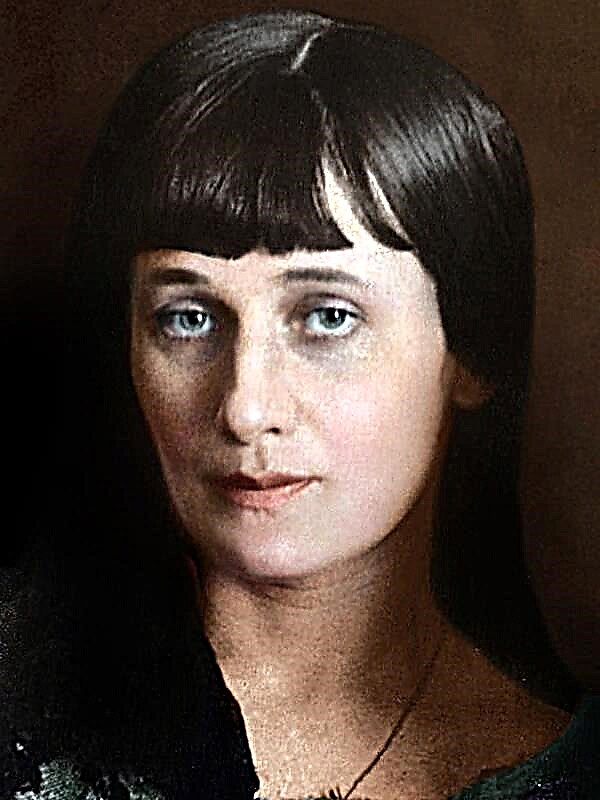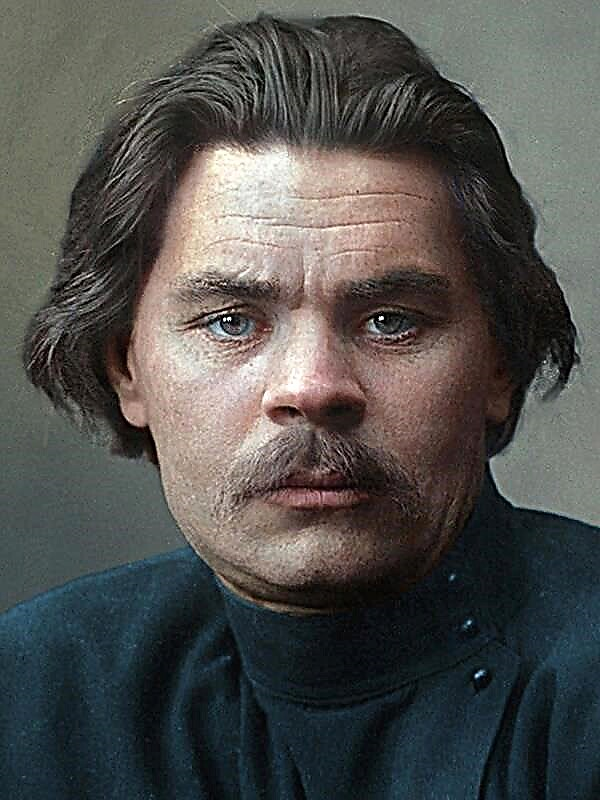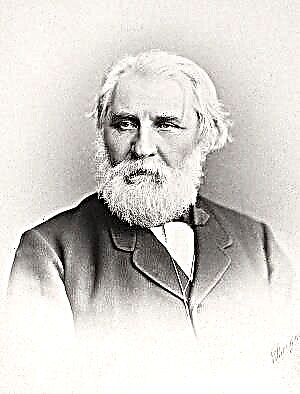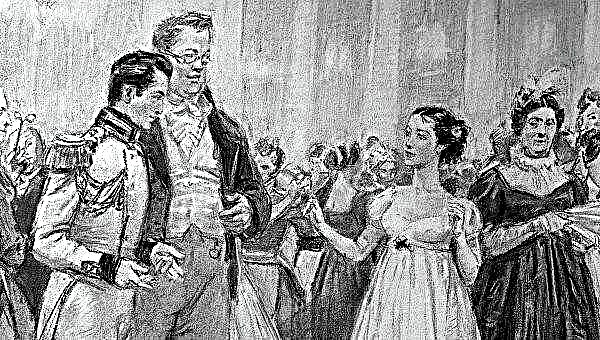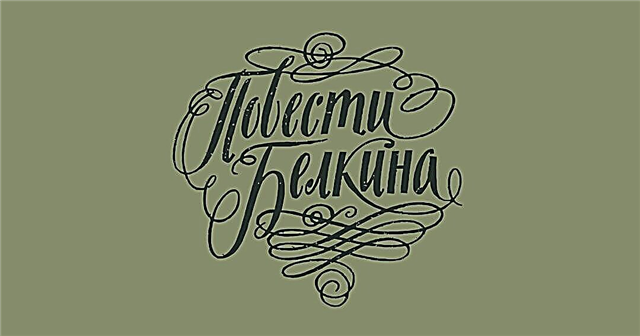: A philosophical text about the nature of love and its forms, presented in the form of a conversation between the ancient Greeks who praise the god Eros. The central place is occupied by the ideas of Socrates about the beautiful, the essence of which is good.
Apollodorus and his friend
Apollodorus, at the request of a friend, when meeting with him, talks about a feast at Agathon, where Socrates, Alcibiades and others were and talked about love. It was a long time ago, Apollodorus himself was not present there, but found out about those conversations from Aristodem.
On that day, Aristodemus met Socrates, who called him with him to dinner at Agathon. Socrates lagged behind and came to visit later. After dinner, those present reclined and took turns saying a laudable word to the god Erot.
Speech of Fedra: the most ancient origin of Eros
Fyodor calls Eros the most ancient god; he is the primary source of the greatest blessings. There is "no greater good for a young man than a worthy lover, but for a lover - than a worthy lover." The lover is ready for any feats for the sake of a loved one, even to die for him. But it is the devotion of the beloved to the lover who especially delights the gods, for which they belove lovers with greater honor. As an example, Fedr cites Achilles' revenge for the murder of his admirer Partocles.
After all, the lover is more divine than the beloved, because he is inspired by God.
It is the powerful god of love, Eros, who is able to "endow people with valor and grant them bliss."
Pausanias Speech: Two Eros
There are two Eros: vulgar and heavenly. Eros the vulgar gives love to insignificant people, heavenly love is, first of all, love for young men, for a creature more intelligent and exalted than a woman. Such love is a concern for moral perfection:
But that vulgar admirer who loves the body more than the soul is low ... One has only to bloom the body, how it "flies" ... But who loves for high moral virtues, he remains faithful all his life ...
It is commendable if the beloved youth accepts the courtship of a fan and learns from that wisdom. But the feelings of both must be absolutely sincere, there is no place for self-interest in them.
Eriksimach Speech: Erot Spills Throughout Nature
The dual nature of Eros manifests itself in all things. The moderate Erot and the unbridled Erot must be in harmony with each other:
After all, the healthy and diseased beginnings of the body ... are different and dissimilar, and the dissimilar strives for the dissimilar and loves him. Therefore, in a healthy beginning one Eros, in a patient - another.
It is necessary and beautiful to please the moderate god and honor him, to resort to the vulgar Eros must be careful so that he does not cause incontinence. Fortune telling and sacrifices help to establish friendships between people and the gods.
Aristophanes speech: Eros as a human desire for primordial integrity
Aristophanes tells the myth of the androgyns - ancient people, consisting of two halves: two modern people. Androgynes were very strong, for the decision to attack the gods Zeus cut them in half.
... when the bodies were cut in half, each half rushed to the other with lust, they hugged, intertwined and, eager to grow together, did not want to do anything separately.
Since then, the halves of androgynes have been looking for each other, wanting to merge together. Thanks to the union of man and woman, the human race continues. When a man converges with a man, satisfaction from intercourse is nevertheless achieved. The desire for integrity is the desire to heal human nature.
Aristophanes calls the men descended from the former man who are attracted to each other worthy: they are by nature the most courageous.
Thus, love is the thirst for integrity and the desire for it. Before ...we were one thing, and now, because of our injustice, we are settled separately by God ...
Agathon's Speech: Perfection of Eros
Eros is the most perfect god. He is the bearer of the best qualities: beauty, courage, judgment, mastery in the arts and crafts. Even the gods can consider Eros as their teacher.
Socrates modestly remarks that he is in a difficult position after such a beautiful speech by Agathon. He begins his speech by dialogue with Agathon, asking him questions.
Speech of Socrates: the goal of Eros - possession of good
Eros is always love for someone or something, the subject of this love is what you need. If Eros needs the beautiful, and the good is beautiful, then he needs the good.
Socrates described Eros as if based on the story of a Mantinean woman, Diotima. Eros is not beautiful, but not ugly, not kind, but not angry, which means he is in the middle between all extremes. But since he is neither beautiful nor kind, he cannot be called a god. According to Diotim, Eros is neither a god nor a man, he is a genius.
The purpose of geniuses is to be interpreters and mediators between people and gods, passing to the gods the prayers and sacrifices of people, and to people the orders of the gods and rewards for the sacrifices.
Eros is the son of Poros and the penniless Penia, therefore he personifies the middle between his parents: he is poor, but "paternally reaches for the beautiful and the perfect." Eros is brave, courageous and strong, thirsts for rationality and reaches it; he is busy with philosophy.
Eros is a love of beauty. If beauty is good, then everyone wants it to be his destiny. All people are pregnant both bodily and spiritually. Nature can only be resolved from the burden in the beautiful.
The intercourse of man and woman has such permission. And this is a divine matter, for conception and birth are the essence of the manifestation of the immortal principle in a mortal being ... that means love is also a striving for immortality.
Caring for the offspring - the desire for the eternal, in eternity you can achieve the beautiful - the good.
Then a drunk Alcibiades appears. He is offered to say his word about Eros, but he refuses: he recognizes the speech of Socrates before him as logically indisputable. Then Alcibiades is asked to praise Socrates.
Speech of Alcibiades: Panegyric of Socrates
Alcibiades compares Socrates's speeches with playing the satyr Marcia on the flute, but Socrates is a satyr without instruments.
When I listen to him, my heart beats much harder than that of the raging Coribant, and tears flow from my eyes from his speeches; the same thing, as I see, is happening with many others.
Alcibiades admires Socrates. The young man hoped to draw his wisdom and wanted to seduce the philosopher with his beauty, but beauty did not produce the desired effect. Alcibiades was subdued by the spirit of Socrates. In a joint campaign with a fan, the philosopher showed his best qualities: courage, stamina, endurance. He even saved the life of Alcibiades and refused a reward in his favor. Socrates has a unique personality compared to all the others.
Final scene
Socrates warns Agathon against the speeches of Alcibiades: Alcibiades wants to sow discord between Agathon and the philosopher. Then Agathon lays closer to Socrates. Alcibiades asks Agathon to lie at least between him and Socrates. But the philosopher replied that if Agathon lay lower than Alcibiades, then he, Socrates, could not give praise to his neighbor on the right, i.e. Agafon. There were noisy revelers, someone went home. Aristodem fell asleep, and woke up, saw Socrates, Aristophanes and Agathon talking. Soon Alcibiades left after Socrates.


 Hungry city
Hungry city